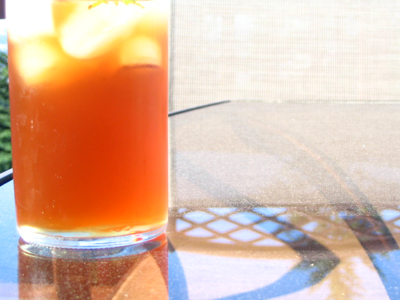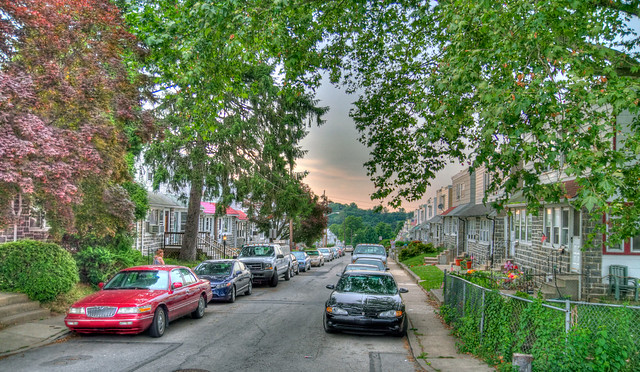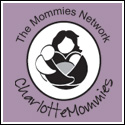This post is part of a summer blog hop that is the brainchild of Meriah Nichols. See other posts on the topic of Connection.
Until my son with Down syndrome was born about 6 years ago, I had no connection to disability in my life, or at least I didn’t think I did.
But if I scour the archives of memory, I see the little moments of connection that were threaded through my life. I hesitate to claim them as anything to do with me, because mostly I stood on the periphery.
No one in my family was disabled, but enough of my aunts, uncles and grandparents were sick or infirm that it made me scared of illness, hospital stays and nursing homes – things I associated with disability at the time, though I don’t now.
As a child, I was often sick. I remember missing school; even worse, I remember missing my one and only chance to go to the circus. We had to cancel at the very last minute because I was sick. Again.
I was born two months premature and had a host of allergies, now resolved. Every Wednesday, I got a shot in my arm that left a bruise. After a while I didn’t notice it, but to this day, the antiseptic smell of that doctor’s office and the antiseptic look of those wood paneled walls occupy a prominent space in my sensory memory, not at all tempered by the sweetness of the weekly lollipops.
When I was around 10, my mother took on the nearly fulltime job of caring for her elderly mother. My grandmother did not live with us, but it seemed my mother was constantly at her apartment, doing her shopping, helping her with daily tasks or making doctor’s appointments. I got to help too, which I was glad to do. We’d go to the grocery store and I’d take my Nana’s list while my Mom shopped for us. That was fun for me.
But my mother seemed to get little in return for her efforts. My Nana, all of about 5’2’’, had a sharp wit and an unsparing eye that saw fault more easily than success. My mother never said in so many words that this caregiving was stressful, but I saw that it was. I dreaded the day I might have to become a caregiver for someone and vowed I would not let it consume me. (Little did I realize that her being a parent — my parent — was also likely all-consuming.)
In our neighborhood was a boy my age whose disability rendered him permanently childlike, both in stature and cognition. At 13, he looked like a 6-year-old. I don’t know if he had an official diagnosis. If he did, I never knew what it was. All I knew was that he had a sweet smile and very gentle eyes, magnified to twice their size behind stereotypically 1970’s style Coke-bottle glasses.
His mom would take him outside on their little row-house porch, just up the street from us. Everyone who passed by was a “friend,” who she gently encouraged to “Come on up and say hi to David.” I see now the steel beauty contained in this little act of hers, this determination that neither of them be alone. He was her only child.
I would often stop and say hi to David, which really meant sitting on her wrought iron chairs and having a glass of cold ice tea, quite good, while listening to her narrate the world for David, who never spoke. He would move back and forth from foot to foot and smile eagerly through the iron bars of the fence, making little noises when his Mom pointed out a squirrel or a cat, or a bumblebee. If his Dad happened to come home from work while I was there, it was like the heavens opened, and he’d wave his hands and squeal with excitement. Happiness.
Once I babysat for him, this boy exactly my age. I cut his sandwich into small pieces at lunch, played quietly with his toys alongside him, helped him sit on the potty and wipe afterward. The whole time we were together, he was calm. When his Mom came home, he behaved more defiantly, and seemed uneasy.
I always chalked that up to him somehow understanding the resentment I thought I saw lurking beneath the surface of her face, her mouth hard set in a line of displeasure. David never got any better, and I sensed that she took it hard. She would sometimes express the idea that it was hard, raising David, and yet her voice always resonated with a sing-song of joy, especially when talking to him.
So now looking back, again with the perspective of a parent whose children are often defiant and then some, I wonder if it wasn’t just him unloading his frustrations on Mommy (as all kids are wont to do), his sense of confusion over why she had gone and left him with this quite boring young teenager.
The only other child outside of “typical” that I encountered was another young charge that I took care of once a week when I was 16. He was about 7, and his father had recently died of cancer. Apparently, he wasn’t able to process this event and seemed to the untrained eye to be mentally disturbed.
He’d walk around the streets wearing a blanket as a cape and calling himself Jesus Christ, but not in a pretend way. He seemed convinced of it: he was God and as God, he’d surely find a way to bring his father back. Other children avoided him and just about everything he said or thought seemed, in a word, strange.
I can’t recall exactly what we did to pass the time when I took care of this young boy. Maybe some board games or pretend games? I really can’t say, all I can recall is the one time I had to put him to bed. I think I had to give him a bath, after which he absolutely refused to sleep in his own bed and so I had to try and get him to lie still in his Mom’s bed, an impossible task as he kept hopping up and down and I had nothing but words to talk him out of it. By the time his Mom got home, I was mentally and physically exhausted, but proud that at least he now seemed tired enough to sleep.
I was fascinated by him and had wanted so desperately to help him, thinking in my naiveté that I could, or should. After writing this, I decided to look him up on Facebook. If the adult male I found is not him, he’s doing an excellent approximation. I felt much relieved to see that his public profile shows him cavorting about in a variety of juvenile selfies, including one of him picking his nose. Ah, the resilience of the human spirit.
While still in high school, I got a fulltime summer job caring for an elderly woman with Alzheimer’s who lived with her daughter across the street from us. The woman, let’s call her Eleanor, was very gentle in nature and laughed easily.
She couldn’t walk without assistance, so I didn’t need to worry about her wandering away or hurting herself, because she spent all day sitting in her chair watching TV. I was there simply to keep her company and help her to the table when it was time for lunch. She couldn’t use the bathroom anymore, so I also had to change her Depends a few times. Though potty-training my own child sometimes filled me with exasperation and even disgust, this act of basic caregiving did not faze my teenage self.
Eleanor had many moments of lucidity, but more often she would ask when her husband or her son was coming. (They weren’t; her husband had died and her son lived far away and rarely visited.) We settled into a basic routine: she called me “You” if she needed anything, and I often read books while the TV played on, pausing to laugh with her at something silly. Oprah at 4 p.m. was a highlight for us both. We enjoyed the show, but we also knew that when it was over, her daughter would soon be coming through the door.
I hope you, dear reader, haven’t come away with the wrong impression after reading these stories. I did not take these caretaking jobs because I was a kind person. I took them because I wanted the freedom that came with earning my own money, and these were the most readily available jobs outside of working at the mall, which I also did. Teenage girls were not always burnishing their resumes during breaks where I came from (but we all got into good colleges anyway). They were finding ways to earn the spending money they needed to go dancing and buy the music, cute clothes and dangly earrings they read about in magazines. I had an internship, sure, but I also worked at the mall, sold Avon, and took care of people.
Yet I wonder: in these acts of caring, did I absorb some nuggets of truth about life? I doubt it. But I do think that sitting here, thinking about these stories, has made me realize that I’d been exposed to a wider variety of people than I thought. In theory, I don’t think of disability as a very big deal, though the concrete reality of it is much more complicated. But at least after all these years I’m not scared of being someone’s caretaker anymore. Being my son’s caregiver has been nothing like I worried it might be in the early days. It has not consumed me. We have a fun, active family life with our three kids – big sister, my son and his twin sister — that he is fully part of. The boogeyman of my childhood, chronic illness, did not come for us as I feared, though for the first few years of my twins’ lives, I thought he might because they were constantly sick.
If I’ve come to think anything specific about disability it is probably that we shouldn’t assume that someone who looks disabled needs our help. Ask first. More often than not, people with disabilities could mainly use a friend, a bit of conversation, a hand that reaches out and tells them that they are a part of the community too. Acceptance – not just tolerance, but an acceptance that they are who they are and it is no trouble for you to meet them on their terms.
I’d love to say that this way of thinking made it easier for my son with Down syndrome to have me as a parent, but I’m pretty sure it did not. No amount of caretaking could have prepared me for this most interesting and challenging of tasks, and most days I’m still not up to it. I don’t deserve his unconditional love and I’m barely quick enough to keep up with him.
I don’t really think of the term disabled as applying to my son, though I know it does; I am not in denial. Our boy is just our crazy little son, one of the funniest kids I’ve ever met, endlessly entertaining and frustrating in almost equal measure. If this gives me a connection to disability, then I guess I have one, but it doesn’t feel true. I don’t know any more about disability than I did at 16. But what I do have is a greater variety of stories to share. I hope you’ll visit again for more. In the meantime, check out the blog hop, where writers from across the world share stories about disability in their lives.




Enjoyed your writing once again.
Jerry
Thank you so much for being a reader, Jerry. It means a whole lot.
I loved your story. You really have a way with words and I love reading anything you write. I can’t say I could’ve done the caregiving you did as a teenager. I stuck to the jobs at McDonald’s, Foodtown and the bank while I was in school, with an occasional babysitting on the side.
Thanks, Stephanie! You always know how to make a gal feel good. I wish I could say those jobs helped me be a better parent, but, nah, I’m just as confused as anyone else, maybe more so, since my charges were easier to deal with than my own circus!